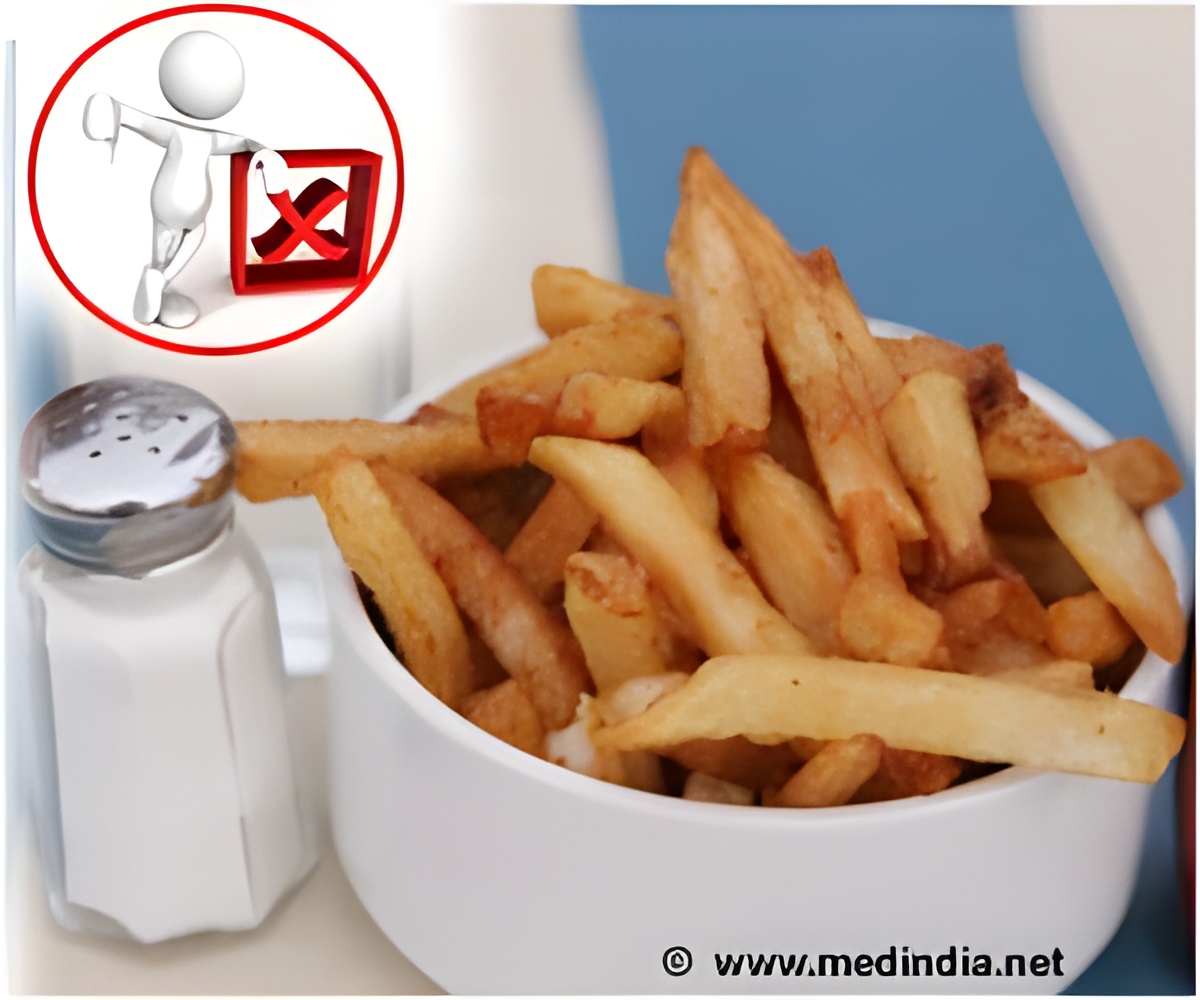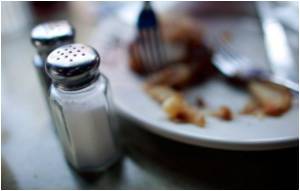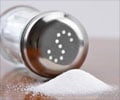Controlling salt intake helps to reduce heart disease.

A survey found that the daily salt intake in the United States is much more than is currently recommended. Current guidelines permit a maximum sodium consumption of 2.3 g among normal people and 1.5 g in patients at a high risk for heart disease like African Americans, people with high blood pressure, diabetes or kidney disease.
The problem of high-salt containing food is not only restricted to the United States. The same foods are now commonly available in the Indian market. Most of them are ready-to-eat, thus providing a tempting alternative to cooking. Awareness should be created among the general public to control the intake of these foods and stick to the healthy Indian diet before it is too late.
One way to control the salt intake would thus be to implement guidelines for food manufacturers and restaurants to reduce the salt content of their foods. The impact of reducing salt in these foods could be huge; it could prevent a large number of deaths due to heart disease and result in huge savings in healthcare-related expenditure.
Another way to reduce the intake of these high-salt containing foods is to educate the general public. People should also be taught to check food labels and select foods that contain low sodium.
Reference:
Source-Medindia













